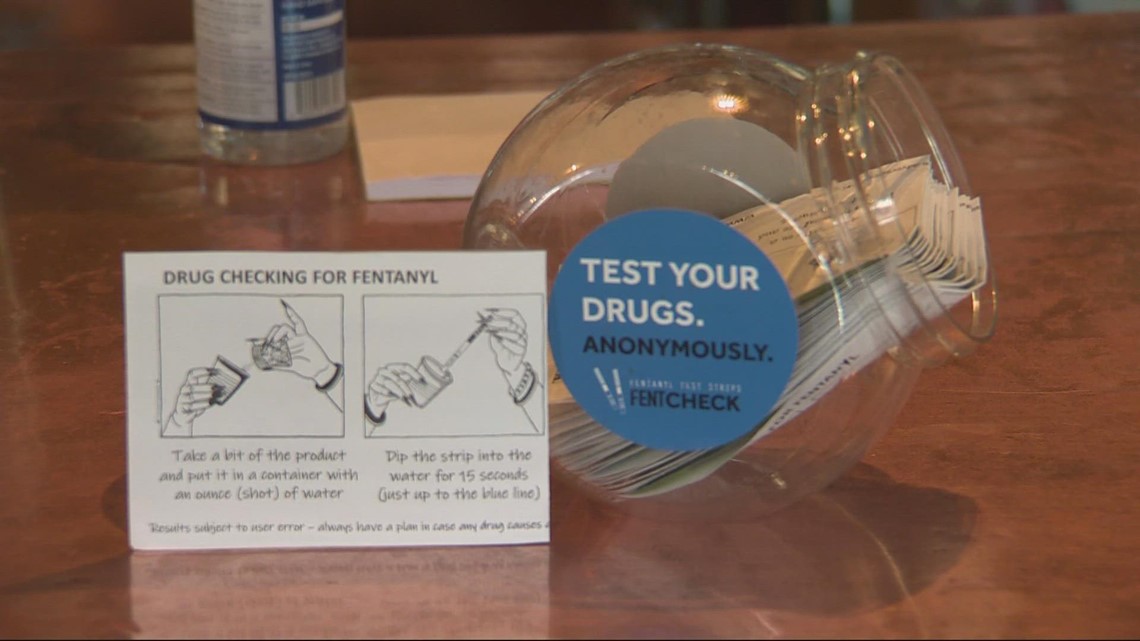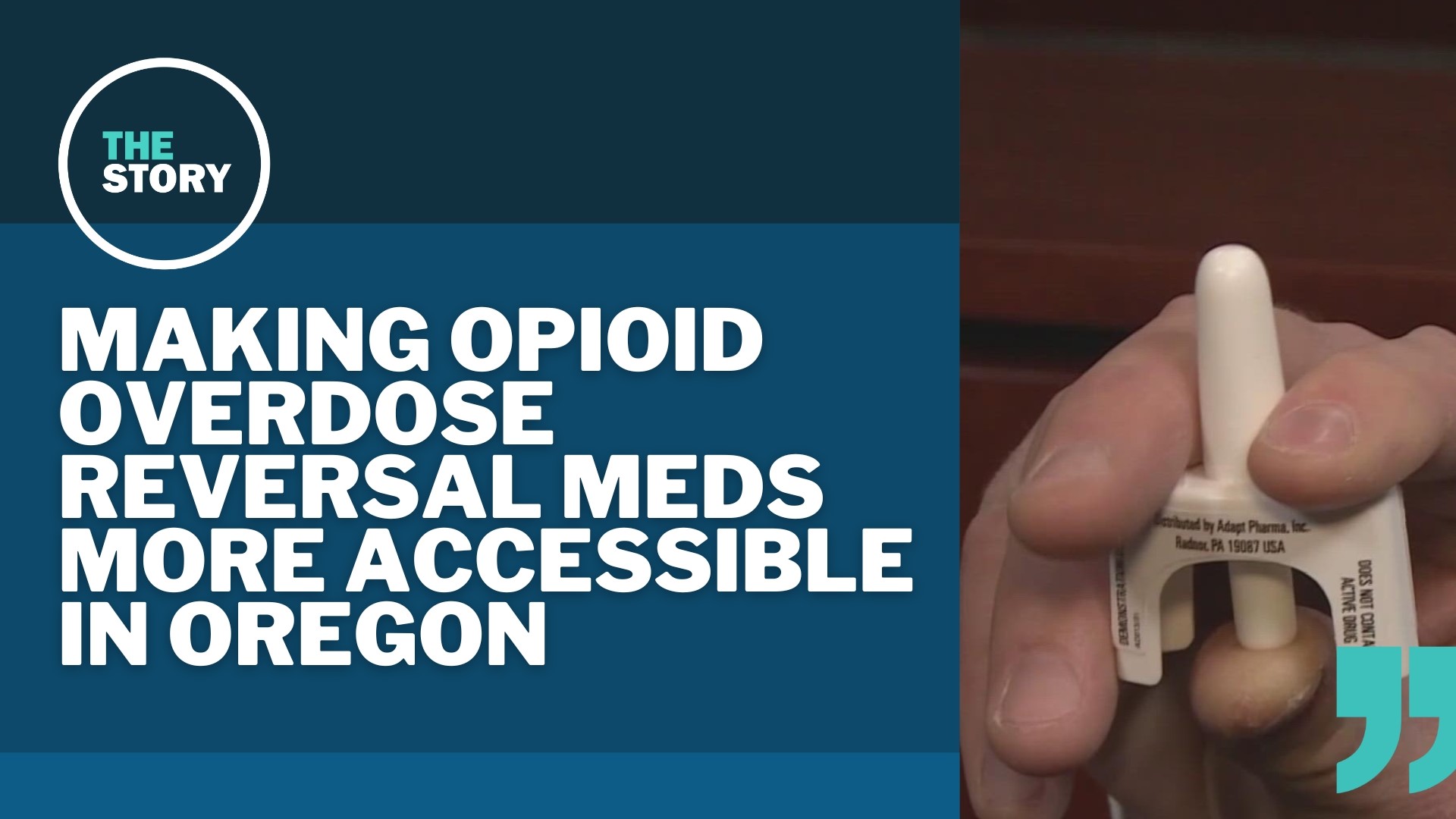SALEM, Ore — Oregon lawmakers are advancing bills that would expand public access to the opioid reversal medication naloxone throughout the state.
The drug naloxone, commonly sold under brand names like Narcan, is one of the best tools available to counter overdoses and prevent fentanyl deaths.
"We want to build infrastructure across the state that allows people to get access in their communities. It could be a fire station, it could be a public library, it could be a bar or restaurant," said state Rep. Maxine Dexter, a physician who represents Portland's west side in the legislature.
Dexter, one of the co-sponsors on the legislation which is encompassed in HB 2395, said it would make naloxone legal to have and use without a prescription.
Narcan can currently be purchased in Oregon from a pharmacist without a prescription, but other access is limited.
Dexter said that if the "Opioid Harm Reduction Policy Package" passes, the state of Oregon would purchase naloxone in bulk for a cheaper price and then offer the drugs at a discount to anyone who wants to stock them. She said it would not be mandated, but available.
"What everyone needs to know is there’s no danger in giving a person naloxone — if you don’t have any opioids in your body, it doesn’t do anything to you, there’s no side effect or danger," Dexter said.
This expanded access would apply to schools, as well. Nationwide, fentanyl overdose deaths among adolescents more than tripled between 2019 and 2021 — from 253, to 660, to 884.
The Oregon Health Authority reports that unintentional opioid overdose deaths in the state rose from 280, to 472, to 745 in the same time period.
HB 2395 and related bills would allow teachers and school staff to use naloxone without a parent’s permission if they suspect a student might be overdosing.
"I have a teenager in high school, I want my school to know that it is appropriate to resuscitate a child without worrying about liability," Dexter said.
The bill package would also make it legal to have fentanyl test strips: kits that can detect if there’s fentanyl in pills or other substances. They are currently considered drug paraphernalia.


Dexter said a police officer asked her to make this change.
"Even law enforcement didn’t think it made sense that the paraphernalia was criminalized and in the way of people being able to make sure they could be safe," she said.
Dexter said the bills are prepared to pass with bipartisan support, and the public shouldn’t be scared to use Narcan if it’s available and they believe someone could be overdosing.
"For the lay people, a nasal administration is probably the easiest way. You literally squirt something up someone’s nose, that’s all you need to do — the package has clear instructions, it’s straightforward," she said.
Other Oregon lawmakers and their staff members recommended Dexter speak to KGW on this subject.
Dexter said she also expects Oregon to improve its tracking and data collection on fentanyl overdoses, saying the opioid settlement board is working on that now.
Narcan nasal spray and other forms of naloxone can be expensive — between $75 and $150 for two doses — so the cost for businesses, public agencies and individuals will depend on Oregon's bulk purchasing cost and subsequent offer for distribution.
Additionally, Narcan can expire within two or more years, which could lead to questions about replacing any widespread medication.
However, Dexter said the first step is making naloxone widely and publicly available.
"Public health changes are always too early or too late, you’re never at the right time," she said. "So sure, we could’ve done something sooner but what this acknowledges is we have a lot of work to do, we’re leaning in and we’re going to take care of our communities the best that we can. There’s going to be more we should consider; this is just a start."

